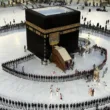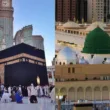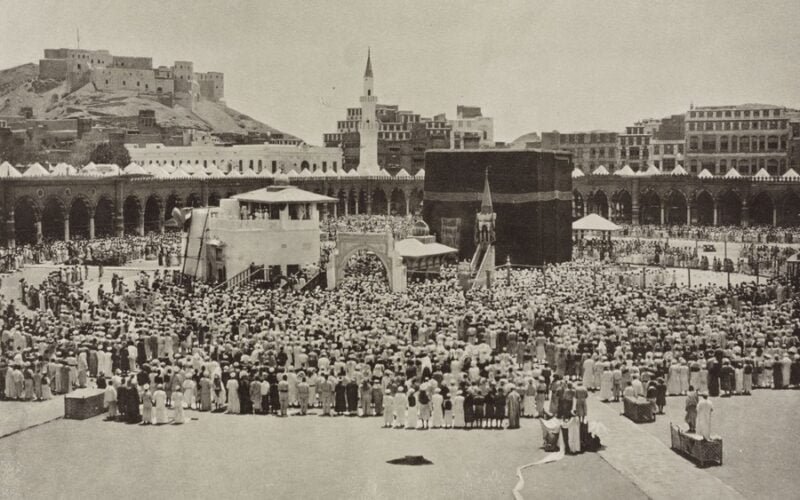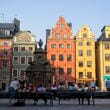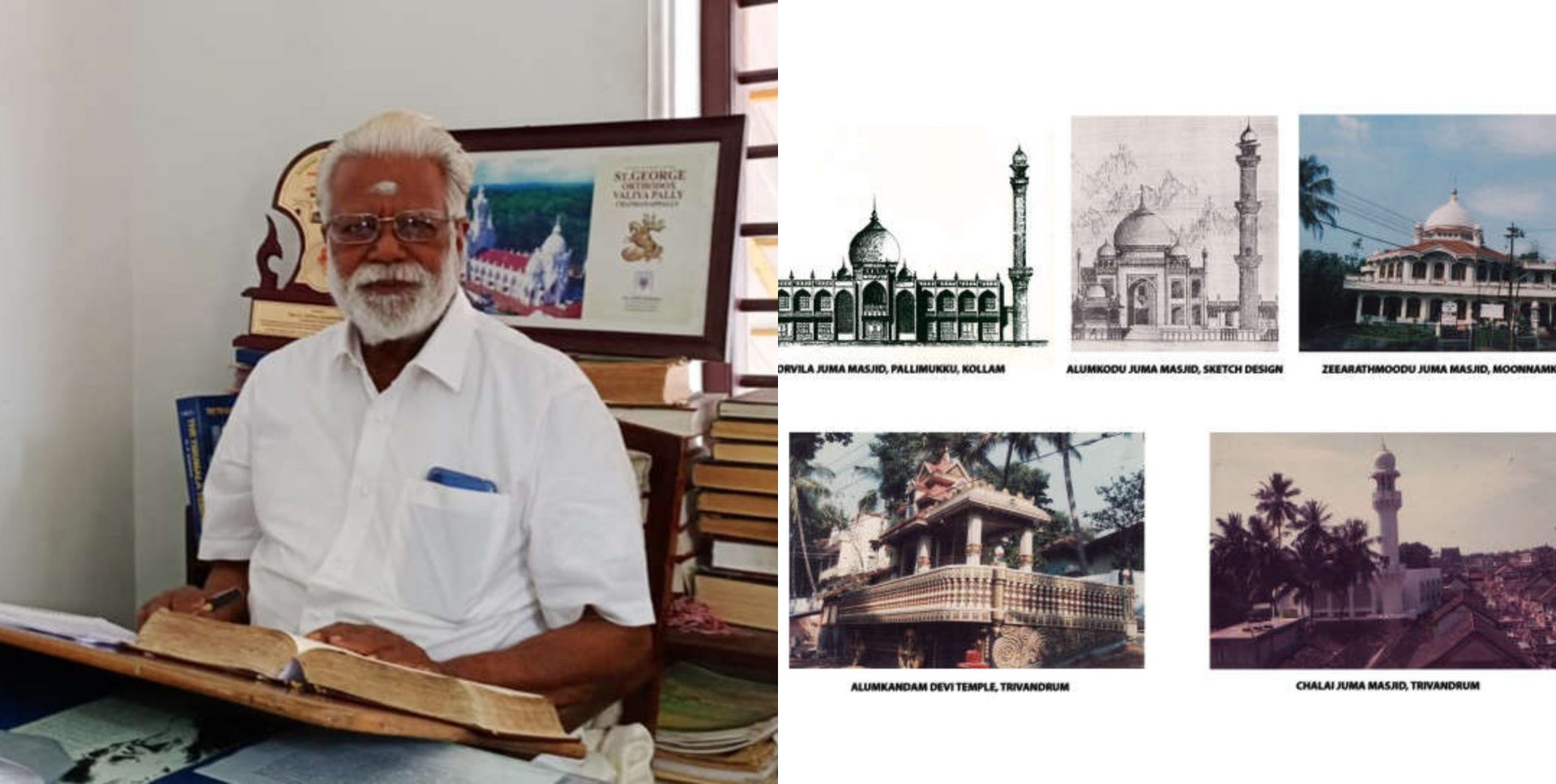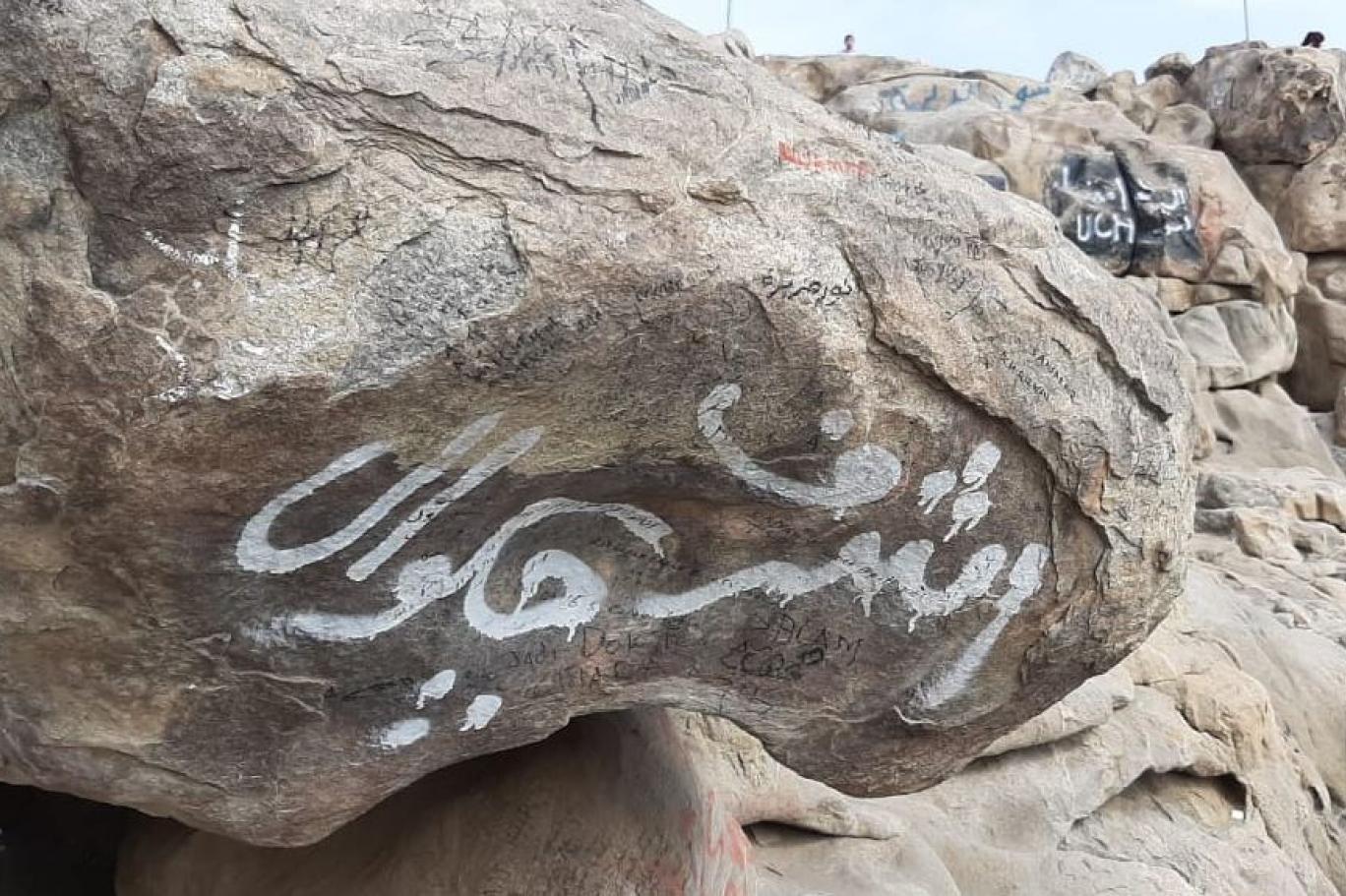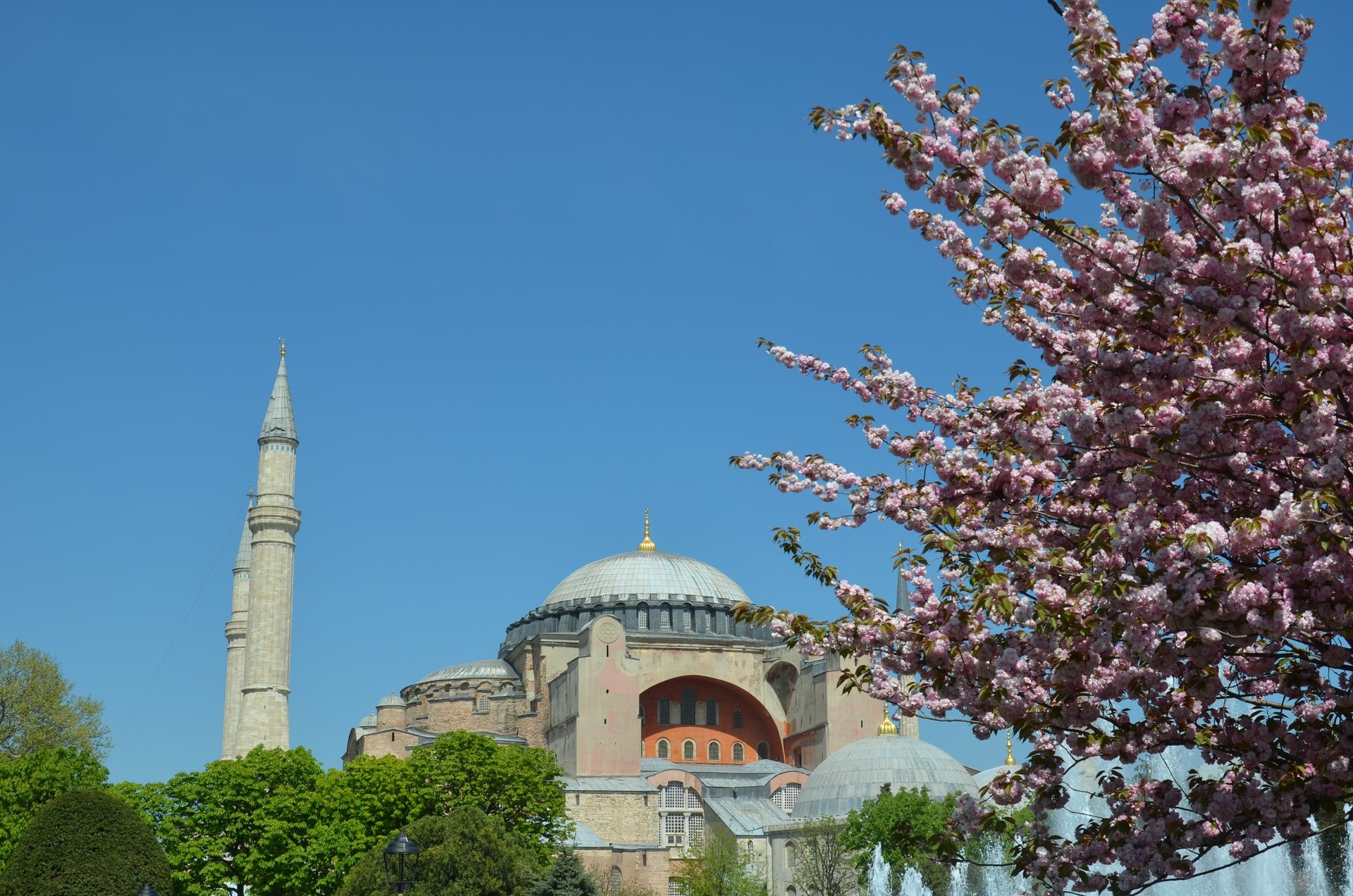In Pakistan’s history, one event shines brightly as a cherished memory – the making of the Ghilaf-e-Kaaba, known as the Kiswa, in Karachi, back in 1962.
This unique privilege was bestowed upon Waheed-ud-Din Ansari, the proud owner of a famous fabric store in Saddar.
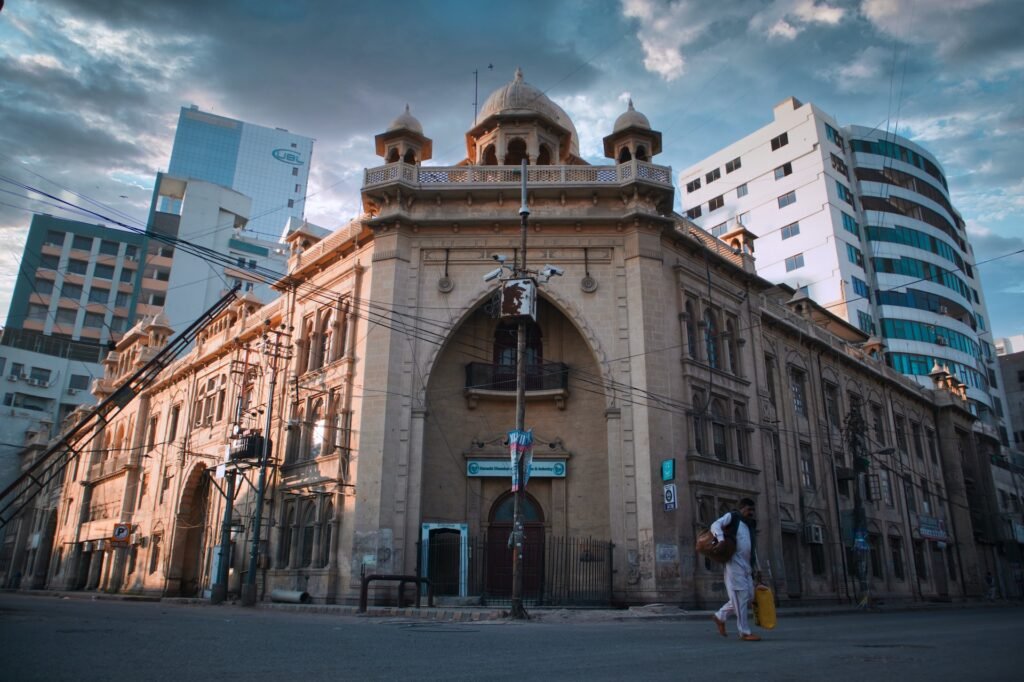
It all began when a group of important visitors from Saudi Arabia journeyed to Pakistan. They were on a mission to find skilled craftsmen who could create the precious covering cloth for the Holy Kaaba in Mecca. Among their searches, they discovered a remarkable sample at Ansari’s silk house that won their hearts.
Impressed with the intricate work and dedication put into the sample, the Saudi authorities chose Ansari and his team for the sacred task. With a sense of honor and devotion, Ansari gathered a team of 34 skilled artisans. Together, they embarked on a three-month journey, pouring their hearts into creating the holy cover Kiswa.
The Kiswa, a symbol of unity for Muslims around the world, was lovingly handcrafted with great care. Every stitch carried a profound meaning, making it an emblem of deep reverence for the sacred structure it would eventually be a part of.
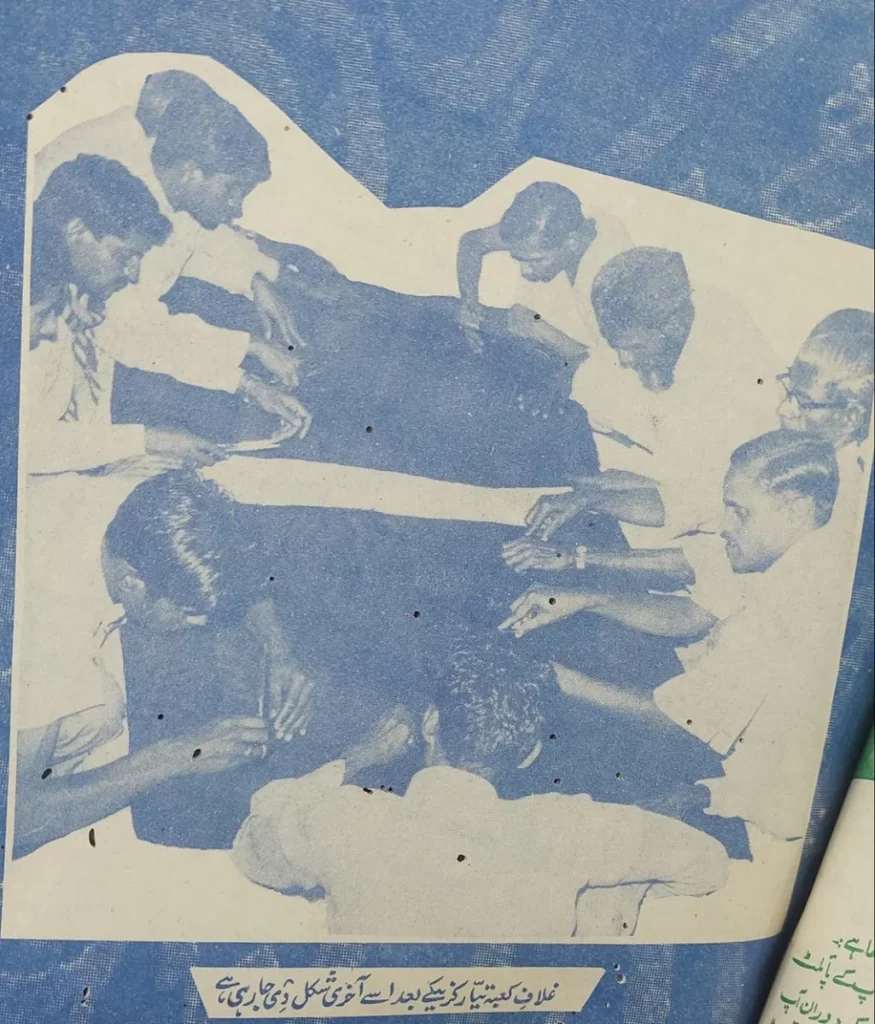
The completion of the Kiswa filled Pakistan with immense pride. It was a remarkable contribution to the rich Islamic heritage. Before the sacred cover made its way back to the Holy Kaaba, it was proudly displayed to thousands of people at Polo Ground in Karachi.
The legacy of this historic event lives on today. The privilege of crafting the holy cover, Kiswa, remains a symbol of Pakistani Muslims’ unyielding bond with the Holy Kaaba.
Looking back, the year 1962 holds a special place in the heart of Pakistanis. The story of Karachi’s involvement in crafting the Kiswa is a testament to the nation’s craftsmanship and unwavering commitment to upholding sacred traditions.
This tale of honor and devotion unites hearts and spirits, celebrating the timeless bond between Pakistan and the Holy Kaaba, a cherished symbol of unity for Muslims worldwide.
Subscribe to our channels on WhatsApp, Google News, Facebook and Instagram.Discover more from The Islamic Information
Subscribe to get the latest posts sent to your email.



